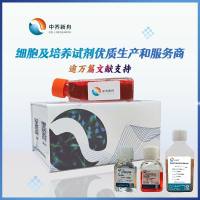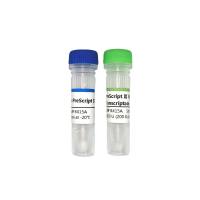Reverse Transcriptase In Situ PCR: New Methods in Cellular Interrogation
互联网
528
The advent of the reverse transcriptase polymerase chain reaction (RT-PCR) technique represents a quantum leap in sensitivity over preceding methods of detecting mRNA transcripts, such as Northern blotting. With the arrival of such sensitive techniques, it has become possible to amplify RNA transcripts from very small amounts of template nucleic acid, thus opening new avenues of research that were previously off limits because of difficulties in obtaining adequate quantities and quality of RNA (1 ,2 ). However, RT-PCR suffers from the same limitations as its predecessor because the isolation of RNA necessitates the destruction of the cells/tissue involved, thus preventing the identification of the specific cell source of the mRNA (3 ). Conversely, in situ hybridization allows the specific localization of mRNA to the cells of origin, but the methodology is much less sensitive than RT-PCR (3 ). A methodology that combines the best attributes of in situ hybridization (specific cellular localization) and RT-PCR (high sensitivity) would be desirable. RT in situ PCR provides these attributes, allowing for the location and detection of low copy RNA species, amplified within individual intact cells (4 ).









